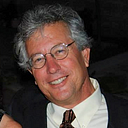This Year’s First School-Wide Discussion Forum
Hosted by Senior, Emi Heller
Ever since November 2017, I’ve made a concerted effort to have the students enrolled in either one of my U.S. history or U.S. government classes host one or more “school-wide discussion forums” annually.
These forums began with promise as students, teachers, administrators, and occasional special guests periodically convened in my room two to four times a year to deliberate on significant topics.
These discussions — which covered issues from the merits of Puerto Rican statehood to the relevance of the electoral college and the proposition of 16-year-olds voting in local elections — quickly became a hallmark of the SMHS Room 404 academic experience. However, the arrival of COVID-19 interrupted this burgeoning tradition.
But now, with the emergence from this period of uncertainty, there is a renewed drive to rekindle the spirit of these forums with the aim of “trying to pick up where we left off,” rebuilding and enhancing the culture of discourse that had begun to take root.
Case in point — the discussion forum held today in my room, hosted by senior Emi Heller and focused on the question of whether those over the age of 70 should be prohibited from being sworn into office as President of the United States.
Preparation for the forum was rigorous, with Emi and her fellow US Government students dedicating much time in class to developing their arguments and communication skills.
The forum commenced with host Emi’s warm welcome and a set of ground rules aimed at promoting a respectful and productive conversation
Emi then stated that the forum itself was designed as a discussion, emphasizing collaboration rather than debate, and that attendees were encouraged to raise their hands before speaking, ensuring a structured and orderly conversation.
Senior Cassidy Taber was the first to speak, arguing in favor of age restrictions for presidential candidates, citing research that suggested cognitive decline after the age of 60.
In response, senior Ethan Kinoshita expressed trust in the American democratic system. By this, he meant that he believes the mechanisms already in place within the electoral process are adequate for determining a presidential candidate’s suitability for office, regardless of age. Ethan’s confidence likely stems from a view that the rigorous demands of campaigning, the scrutiny by the media, and the judgment of the electorate during elections serve as effective filters to assess a candidate’s cognitive abilities and overall fitness to lead. Rather than imposing arbitrary age restrictions, Ethan seemed to suggest that the democratic system, with its checks and balances, is capable of addressing concerns about a candidate’s competency. His stance no doubt implied a faith in the collective decision-making of voters and the institutional processes that govern presidential elections, arguing against the need for additional qualifications such as age limits.
The conversation gained momentum as students passionately presented their perspectives.
- Senior Caden Chan advocated for age restrictions for presidential candidates, highlighting that individuals over 70 should not have the chance to lead. In contrast, senior Sophia Hou opposed the idea, providing a counterargument.
- Senior Taylor Hong expanded the discussion by advocating for age restrictions not only for presidential candidates but also for US Supreme Court justices and teachers. Hong likened age restrictions to expiration dates on food products, emphasizing the importance of maintaining the quality and effectiveness of those in power.
- Senior Reef Stark-Moniz proposed that teachers should retire at 70, and that Supreme Court judges should step down at the same age. These contrasting opinions led to thought-provoking exchanges among the participants.
Teacher Peter Paccone also shared his thoughts, saying that the country is in a mess and he blames its leaders, all old, for the mess it’s in, so he believes that no one over the age of 70 should be allowed to run for president and that Supreme Court justices need to step down.
To which the host, Emi, asked Mr. Paccone, along with some of the other students in attendance whether he thought teachers should also be required to retire at age 70.
Paccone, who at 65 is approaching the traditional retirement age himself, offered a nuanced take. “Yes, I do believe there should be a retirement age for teachers, but only after they turn 70,” he said. “The wisdom and experience senior educators bring to the classroom are irreplaceable, but there should be a point where we assess the ability to continue teaching effectively.”
Following Mr. Paccone’s input, several other students chimed in with varying points of view. Some agreed with the idea of setting a retirement age, highlighting concerns about the energy levels and current knowledge of older teachers. Others argued for the value of experience and the personal touch veteran teachers bring to their profession, suggesting that age alone shouldn’t dictate one’s fitness to teach.
In the final moments of the forum, Emi provided senior Sophia Armendariz with an opportunity to explain her opposition to Ethan’s viewpoint. Sophia cited former President Donald Trump as an example of deteriorating cognitive abilities in older leaders. In response, Matthew Jitngamplang countered by highlighting Trump’s achievements and asserting that there was “nothing wrong with his brain” based on the facts.
Emi skillfully summarized the diverse perspectives before closing out the forum.
Mr. Paccone’s 4th period U.S. Government class attended the forum in its entirety, joined by twenty students from other classes at the school. SMUSD Board Member Jane Chon and SMHS teacher Courtney Rushing were also in attendance.
Conclusion
Wish you all could have been there. Emi, in the role of host, did a great job! A real future she has when it comes to this sort of thing.
